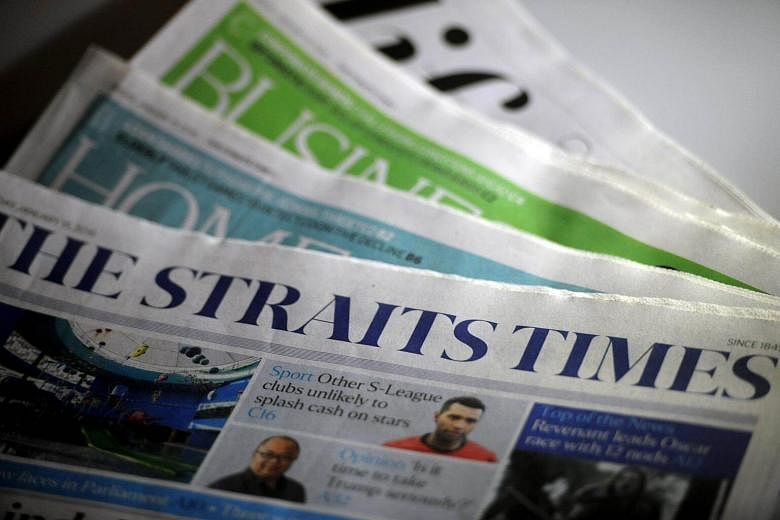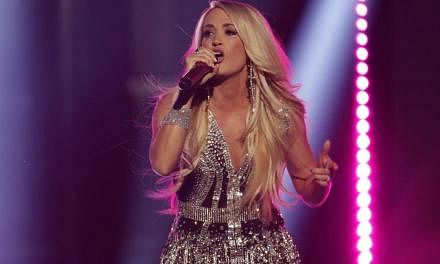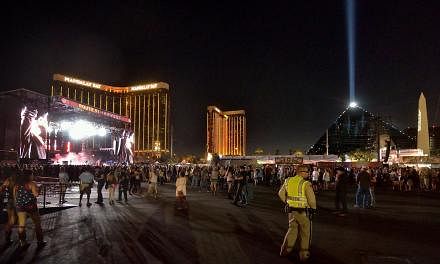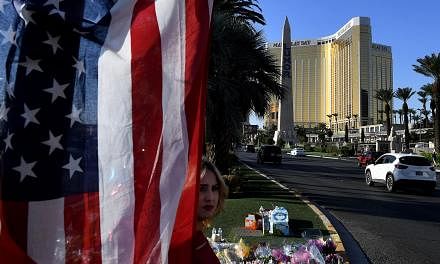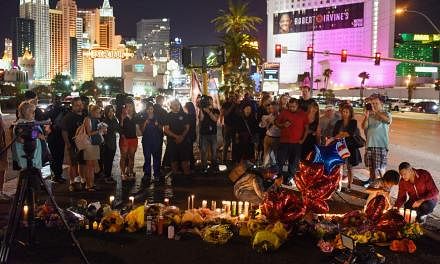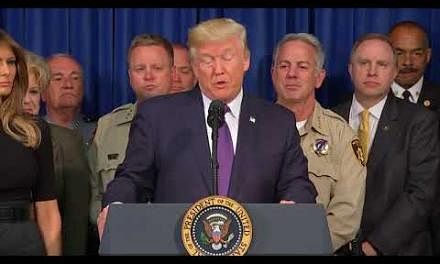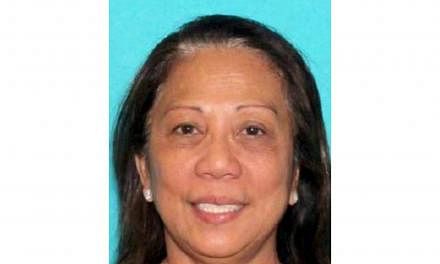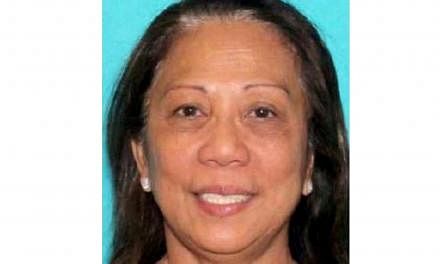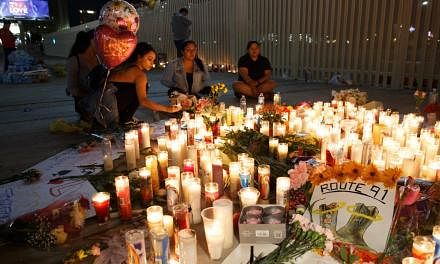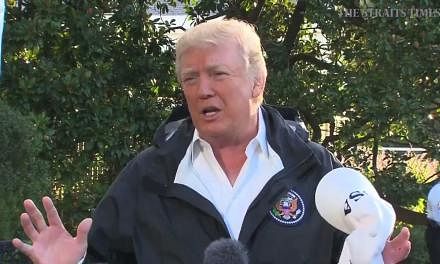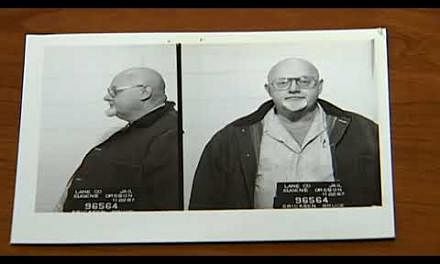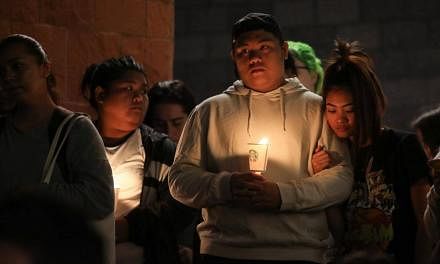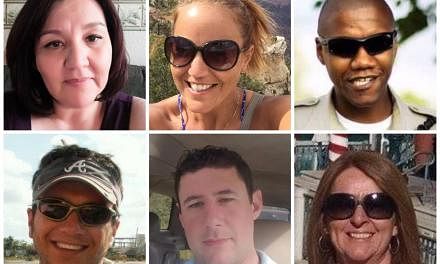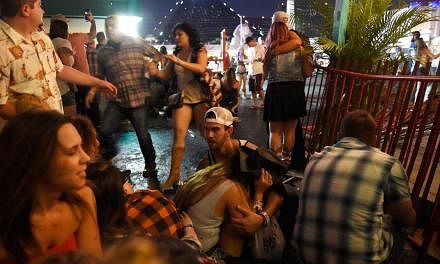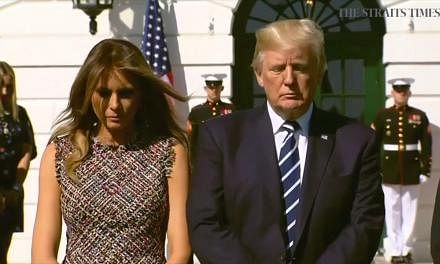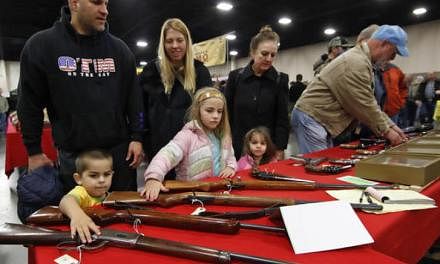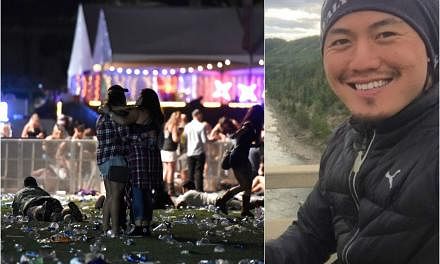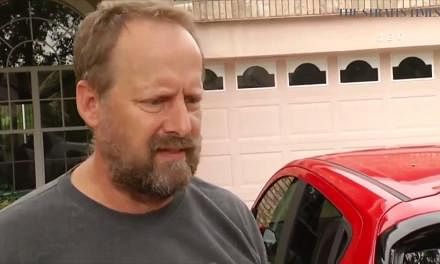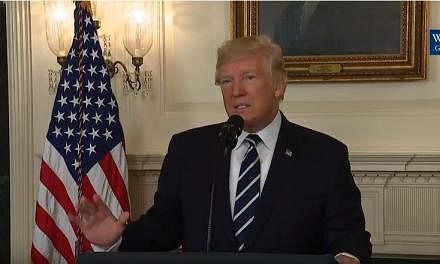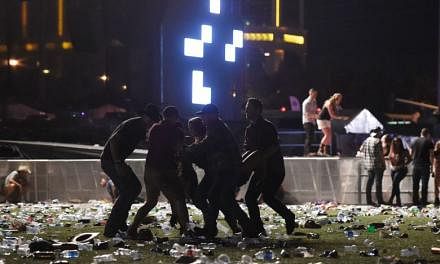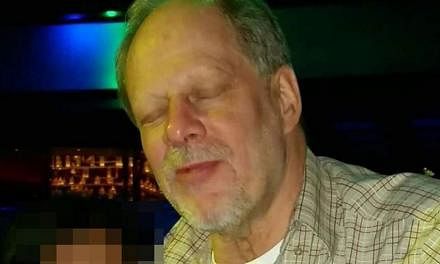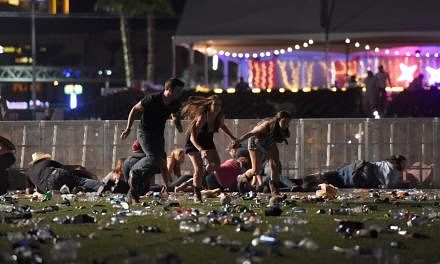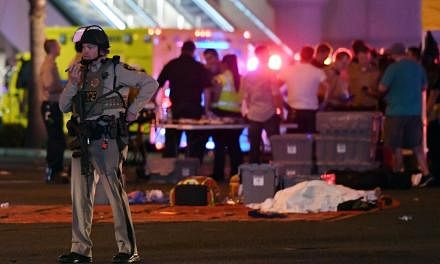LOS ANGELES (AFP) - Dylan Hockley was all of six years old when Adam Lanza burst into his elementary school in Connecticut nearly five years ago and shot him dead, along with 19 other young children and six adults.
Since then, Dylan's mother, Nicole, has waged a determined and tireless fight against gun violence.
She co-founded the group Sandy Hook Promise, named for the school where the killings, which stunned Americans, took place on Dec 14, 2012. Knowing the huge political obstacles to serious gun control in the US, the organisation works on prevention, and particularly on mental health issues and spotting warning signs that can presage violence.
When she awoke on a recent morning to learn of the horrific mass shooting in Las Vegas - the worst in modern US history - she said, "I got incredibly angry and grieving for what was going on. I began crying - and then I got to work".
The news sparked an "emotional roller-coaster" in Hockley, taking her back to the day of her young son's death, just as news of every shooting does.
But it also provoked a sense of "frustration that although we are... slowly making progress, things are moving very slow and every day people die in preventable acts", she told AFP in a phone interview.
There is on average one mass shooting in the United States every day, and 33,000 people are killed by firearms each year, 22,000 in suicides.
Outrage, then action
But Nicole Hockley is determined to fight the "apathy" and weary sense of defeatism that seems to have settled over many Americans in the face of the country's politically powerful gun lobby.
"The violence seems to be accelerating, but our movement is accelerating, too, and it's continuing to gain momentum," she said.
"Every time there is another senseless shooting it gets more people involved, more people outraged. The key is for that outrage to be followed by action, and we need to give people tools," Hockley said, acknowledging anti-gun violence campaigners have not always done that very well.
"I've heard people say for the last five years, 'Oh, if Sandy Hook didn't change things, nothing is going to change things.'"
But, she continues, "a lot of change has happened. People need to open their eyes and see that they can do a lot".
One option is outlined on her group's website: learn to recognise the signs that someone might be close to turning violent, such as a fascination with weapons, excessive and inexplicably aggressive reactions, having been the victim of harassment or violence and publicly displaying weapons.
If mystery persists over what drove Stephen Paddock to kill 58 people and wound nearly 500 as he fired down on an outdoor concert from the 32nd floor of the Mandalay Bay hotel, Hockley insists that "the signs haven't come out, but they will".
'There were signs'
"This is someone who started stockpiling weapons very strategically a year ago. He had a plan," Hockley said.
"When there is a plan, there's linkage, so there were signs and signals. (In the Sandy Hook shooting) it was not until we had the police report, and it took many months to display all the signs that were missed."
The National Rifle Association and much of the Republican Party have long opposed even the slightest regulation of guns.
But the NRA and some Republicans now say they are open to at least considering controls over so-called bump stocks, which Paddock used to enable his semi-automatic rifles to fire almost as rapidly as a fully automatic weapon.
"Any step forward is positive," Hockley said, "but banning or regulating bump stocks is a small reaction to an incredibly large problem."
"We need to think bigger and to stop focusing on the gun and to focus as much on the person holding the gun to prevent them from hurting themselves or others," she added.
Hockley pointed to "extreme-risk protection orders," an option gaining ground in California Connecticut, Nevada, Washington state and 20 other states.
Under such orders, if someone sees a person displaying "at risk" behaviour, he or she can ask a court to direct police to deprive the person temporarily of access to weapons and ensure the person receives appropriate psychological care.
"It's something incredibly helpful in cases of suicide or domestic violence - or potentially homicide and mass shooting," Hockley said.
